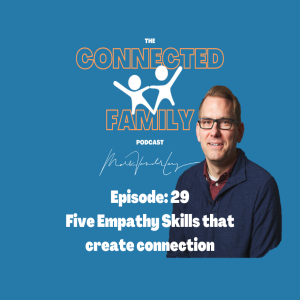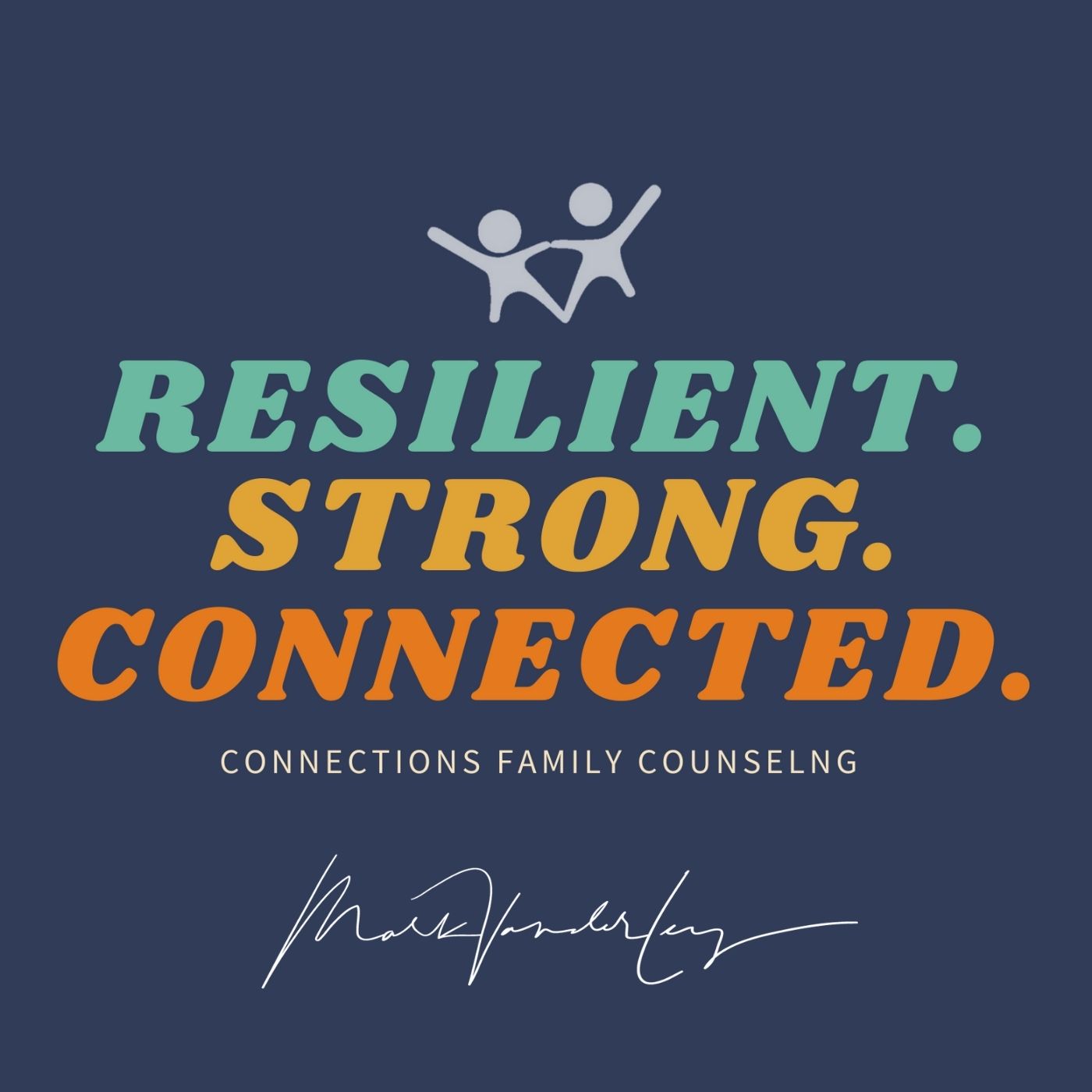Episodes

Sunday Sep 06, 2020
The Five Empathy Skills that Create Connection
Sunday Sep 06, 2020
Sunday Sep 06, 2020
I have been reading Brene Brown’s leadership book entitled “Dare to Lead”. If you are familiar with Brene’s work you know that this book is full of talk about vulnerability, empathy, connection, and relationship. So, since we at Connections Family Counseling are passionate about building a community of connected families it makes sense that we would want to share it with you. “You are going to share a leadership book in hopes of connecting families?”, you ask. Yes, this leadership book outlines in a really understandable way how to create connection using five basic skills of empathy. It is so powerful it can be used in business leadership and in leading your family.
What is Empathy?
First of all, we need to know what empathy is. Brene defines it as such, “Empathy is not connecting to an experience, it’s connecting to the emotions that underpin an experience.” (pg 140). Thankfully, we do not have to have the exact same experience as someone else to give empathy, we just have to feel what they are feeling. Not only that, Brene argues that empathy is an infinite and renewable resource. The more empathy we give the more we have and as long as we continue to give it we will never run out of it.
Empathy Skill # 1: To see the world as others see it, or perspective taking.
We all see the world from our own unique perspective. Our family of origin, nationality, race, gender, knowledge, and experience all influence our view of any given event. However, empathy begins by seeing the world from another person’s perspective. Brene Brown says we cannot do this perfectly but we can, “Honor people’s perspectives as truth even when they’re different from ours.” (pg. 143). When we honor the perspective of our partner or child as valid and important no matter how different than ours we are honoring them as people and laying the groundwork for deep meaningful connection.
Empathy Skill # 2: To be nonjudgmental
We tend to judge others in the areas we feel most susceptible to shame (Brown, 2018) we look for people who are weak in our weak spots and we judge them for it. This can be extra difficult in a family because we are intimately aware of each other’s weaknesses. Alfred Adler once observed that children tend to act out the most in correlation to their parents most strongly held values. If I strongly value success and feel shame when I “fail” I may be easily triggered when my child does not appear motivated or seemingly puts in minimal effort. I may have a very difficult time nonjudgmentally listening to my child’s struggle with a teacher or school assignment if it goes against my personal values and triggers. Being aware of my values and shame triggers while enable me to be kinder to myself and my family.
Empathy Skill # 3 and # 4: To understand another person’s feelings and to communicate understanding of that person’s feelings.
In order to feel what another person is feeling we have to be able to identify and articulate feelings. When a family member is sharing their experience listening for the feelings that underlie the experience and reflecting them back is key to empathy. I often encourage people to imagine what they would feel in the situation, come up with a feeling word and say, “you feel…”. When we use this approach, we risk being wrong. BUT, if we are right our family member feels heard, if we are wrong they can correct us and as long as we accept the correction we move to a place of deeper understanding and connection.
Empathy Skill # 5: Pay attention
Brown (2018) challenges leaders to pay close attention to their internal signals (e.g. heart rate, posture, thoughts) so as to give proper attention to feelings without getting swept up in them. If we feel empathy and get swept away in our family members feelings we tend to lose connection with the person. If we are overwhelmed by the feelings and move way our family member may feel abandoned and not “seen”. Paying attention helps us to balance feeling with a family member and caring for ourselves while maintaining connection to the person.


No comments yet. Be the first to say something!